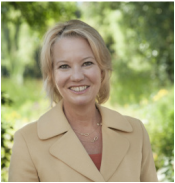
By GHR Chair & CEO Amy Goldman
Re-posted from Devex
The global development community has spent the last three years in conversation on how to eradicate extreme poverty and structure the now-ratified Sustainable Development Goals. During this same period, Pope Francis has urged those in positions of power not to forget the marginalized, while personally visiting those who are often ignored.
His moving words — exceeded only by his powerful acts of compassion — have given energy and encouragement to those striving to end poverty. In light of this, it seems shortsighted that local faith communities are often at best an afterthought and at worst sidelined in the current global development equation.
Agreement on the global goals is a major step forward, but the conversation must now turn to an even greater challenge: How do we realize these ambitious targets?
Many experts agree that completing the “last mile” in the fight to end poverty will be the most challenging. Communities in extreme poverty are often the most difficult to reach and represent areas where current development approaches have not found success.
Recognizing a need for greater creativity, courage and inclusion, we must heed the words of Pope Francis to the United Nations General Assembly. In the spirit of striving “to serve the common good,” we cannot afford to leave any willing partner out of the process. We cannot continue to ignore the central role of faith leaders and communities in fostering hope and opportunity where it is needed most.
Last week, GHR Foundation participated in Pope Francis’ historic visit to the United States. We had an inspiring view of the way he is using the papal office to give voice to the voiceless. Pope Francis highlighted the systemic and deeply personal need to end global poverty. He brought new legitimacy to global development priorities and put faith at the center of the discussion in a powerful new way.
Through GHR Foundation’s efforts to advance inter-religious action, we have seen great progress in the effort to integrate faith into traditional aid models. Government agencies like the U.S. Agency for International Development and the U.S. State Department, as well as nongovernmental funders like Humanity United, are bringing faith leaders to the table. However, Pope Francis has shown us that as leaders in global development, we need to push beyond talking to the people at the top. We need to get to the local level, and substantively engage faith communities on the ground.
All of us working on development issues need to see local faith actors as more than vehicles for implementation — we need to engage local faith communities as partners, respecting their self-determination as the most appropriate architects of the path out of poverty.
In many areas, faith-based groups are the backbone of the community, and in some regions, represent the only health infrastructure. Results recently published in The Lancet show how working with religious leaders and communities improves health outcomes. GHR Foundation funded efforts in Nigeria to engage faith communities to increase insecticide-treated bed net usage and prevent malaria. In Kaduna state, independent research found net use increased to 85 percent from 18 percent as a result of outreach through religious communities. We have seen that when churches and mosques collaborate on issues of common concern, it helps build the kind of trust that can prevent violence, address health risks and drive economic opportunity.
Not only do faith-based organizations bring needed resources, expertise and networks to the table, they also bring diverse perspectives that can help drive innovation. In 2014, Pope Francis urged Catholics not to make the church into another nongovernmental organization, but a caring and compassionate “mother” for all. When the same old development formulas and aid structures fail to make an impact, adding the extra dimension of faith-based care and compassion can be the difference.
The Global Goals have set an ambitious roadmap to ending extreme poverty. But to achieve them, we must be committed to more effectively engaging faith leaders and local faith communities. Pope Francis’s address to the U.N. General Assembly showed that the mission of the global development community and many faith leaders are aligned. He built a bridge between those with a common interest in building a better future for all. With humility and new energy, we should cross that bridge and work together to end global poverty.
Re-posted from Devex
The global development community has spent the last three years in conversation on how to eradicate extreme poverty and structure the now-ratified Sustainable Development Goals. During this same period, Pope Francis has urged those in positions of power not to forget the marginalized, while personally visiting those who are often ignored.
His moving words — exceeded only by his powerful acts of compassion — have given energy and encouragement to those striving to end poverty. In light of this, it seems shortsighted that local faith communities are often at best an afterthought and at worst sidelined in the current global development equation.
Agreement on the global goals is a major step forward, but the conversation must now turn to an even greater challenge: How do we realize these ambitious targets?
Many experts agree that completing the “last mile” in the fight to end poverty will be the most challenging. Communities in extreme poverty are often the most difficult to reach and represent areas where current development approaches have not found success.
Recognizing a need for greater creativity, courage and inclusion, we must heed the words of Pope Francis to the United Nations General Assembly. In the spirit of striving “to serve the common good,” we cannot afford to leave any willing partner out of the process. We cannot continue to ignore the central role of faith leaders and communities in fostering hope and opportunity where it is needed most.
Last week, GHR Foundation participated in Pope Francis’ historic visit to the United States. We had an inspiring view of the way he is using the papal office to give voice to the voiceless. Pope Francis highlighted the systemic and deeply personal need to end global poverty. He brought new legitimacy to global development priorities and put faith at the center of the discussion in a powerful new way.
Through GHR Foundation’s efforts to advance inter-religious action, we have seen great progress in the effort to integrate faith into traditional aid models. Government agencies like the U.S. Agency for International Development and the U.S. State Department, as well as nongovernmental funders like Humanity United, are bringing faith leaders to the table. However, Pope Francis has shown us that as leaders in global development, we need to push beyond talking to the people at the top. We need to get to the local level, and substantively engage faith communities on the ground.
All of us working on development issues need to see local faith actors as more than vehicles for implementation — we need to engage local faith communities as partners, respecting their self-determination as the most appropriate architects of the path out of poverty.
In many areas, faith-based groups are the backbone of the community, and in some regions, represent the only health infrastructure. Results recently published in The Lancet show how working with religious leaders and communities improves health outcomes. GHR Foundation funded efforts in Nigeria to engage faith communities to increase insecticide-treated bed net usage and prevent malaria. In Kaduna state, independent research found net use increased to 85 percent from 18 percent as a result of outreach through religious communities. We have seen that when churches and mosques collaborate on issues of common concern, it helps build the kind of trust that can prevent violence, address health risks and drive economic opportunity.
Not only do faith-based organizations bring needed resources, expertise and networks to the table, they also bring diverse perspectives that can help drive innovation. In 2014, Pope Francis urged Catholics not to make the church into another nongovernmental organization, but a caring and compassionate “mother” for all. When the same old development formulas and aid structures fail to make an impact, adding the extra dimension of faith-based care and compassion can be the difference.
The Global Goals have set an ambitious roadmap to ending extreme poverty. But to achieve them, we must be committed to more effectively engaging faith leaders and local faith communities. Pope Francis’s address to the U.N. General Assembly showed that the mission of the global development community and many faith leaders are aligned. He built a bridge between those with a common interest in building a better future for all. With humility and new energy, we should cross that bridge and work together to end global poverty.

 RSS Feed
RSS Feed
